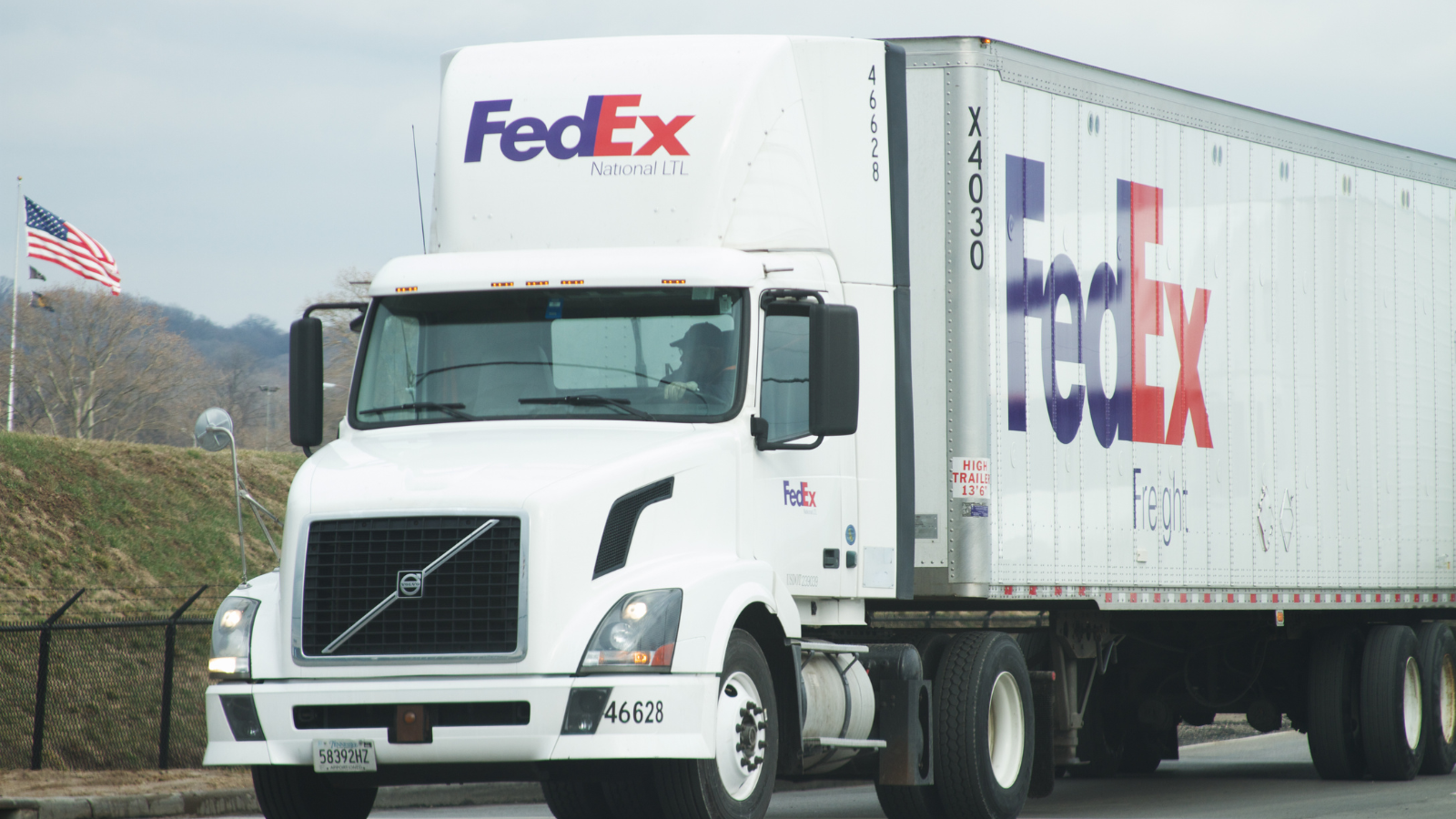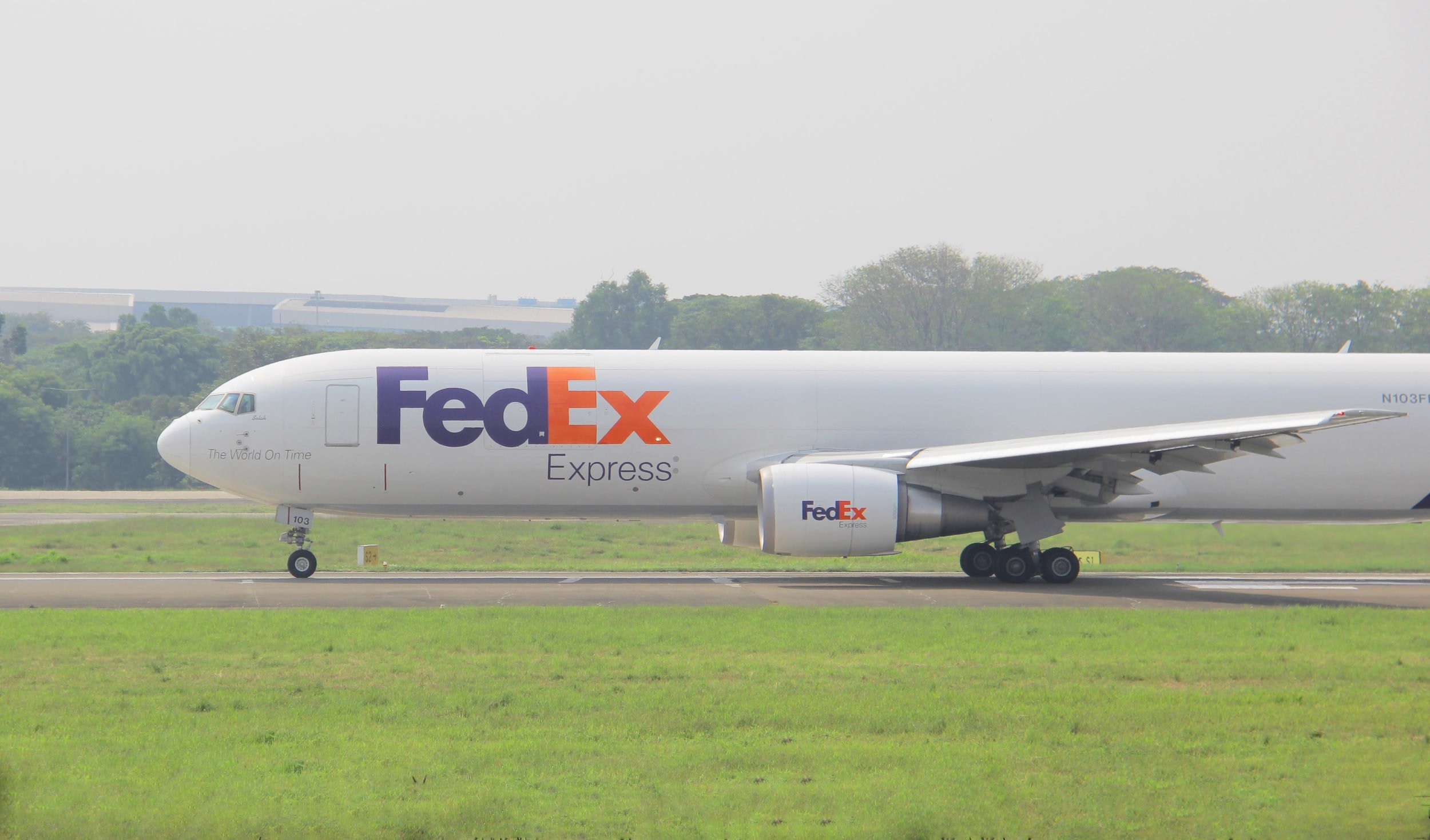✈️🤺🚀 Boeing Grounding Boon, USPS vs. FedEx, & Vulcan's Moonshot
Good morning! ☀️
It's Tuesday, which means it's not just any day—it's Taco Tuesday! As you savor those delicious tacos, let's spice up your morning with the latest news and trends in the world of supply chains. Grab your coffee, take a bite of that taco, and let's dive into today's edition! 🌮
“Never let the fear of striking out keep you from playing the game.”
AA | Airline | Safety
Boeing 737 Max 9 Grounded for Safety
The National Transportation Safety Board has located the plug covering an unused exit door that blew out minutes into an Alaska Airlines flight. This discovery is expected to play a crucial role in the investigation of the incident, which forced a Boeing 737 Max 9 to return to Portland, Oregon shortly after takeoff. As a result of the incident, the Federal Aviation Administration (FAA) has grounded all Boeing 737 Max 9 aircraft involved until they are deemed safe.
NTSB Chair Jennifer Homendy announced that the plug was found near Portland, thanks to a schoolteacher identified only as Bob. The incident occurred on a nearly new plane, which had experienced three pressurization warnings in the past month, though maintenance crews had cleared each warning.
In response to the incident, Alaska Airlines temporarily grounded its 737-9 MAX fleet, while United Airlines suspended service on its Boeing 737 MAX 9 aircraft for inspections. Worldwide, airlines and regulators have taken similar measures, impacting thousands of passengers. Boeing fully supports the FAA's decision for immediate inspections. Boeing's President and CEO, Dave Calhoun, is holding a company-wide webcast on safety and canceling leadership summits to focus on the situation. While this incident raises concerns, it is not believed to indicate a fundamental design flaw with the Boeing 737 Max series.
WHY IS THIS IMPORTANT FOR MY INDUSTRY?
This incident shines a light on a serious safety issue with a certain type of aircraft used for both cargo and passengers. Now that they've grounded those Boeing 737 Max 9 planes, airlines are dealing with some real challenges that could mess up cargo deliveries and cause delays. Keeping up-to-date on these matters helps us tweak our plans and schedules in advance, making sure we move goods safely and smoothly while dodging any hiccups tied to aircraft safety.
Plus, it's a good wake-up call about how crucial regular maintenance and safety checks are in this business. We've got to stick to top-notch safety standards all across our supply chain and logistics operations.
🔥 OUR HOT TAKE?
The recent grounding of Boeing 737 Max 9 planes is once again sparking questions about how reliable aircraft manufacturers and regulators really are. It's not the first time we've seen problems with this plane, and you can't help but wonder if there are some underlying issues they haven't properly tackled. Some are even arguing that these incidents might be a result of an industry more focused on profits, sometimes cutting corners to meet production deadlines, which could potentially compromise safety.
What's more, the sudden grounding of these planes has messed up travel plans for tons of passengers and put airlines in a financial bind. It just goes to show how vulnerable our modern transportation systems can be and how much havoc technical glitches can wreak in our everyday lives.
Contracts | USPS | FedEx
FedEx Expects Significant Business Loss with USPS
FedEx is anticipating a significant loss of business with the U.S. Postal Service when its current contract expires. Over the past three years, USPS has shifted a substantial portion of its volume from air to ground transportation, resulting in declining postal volumes and impacting FedEx Express' performance. According to Pat DiMento, FedEx's VP of flight operations and training, the loss of daytime postal delivery in 29 cities where FedEx operates domestically could reach 50%.
As a consequence of this decline in business, FedEx is expected to have an excess of 200 to 300 pilots by October. To address this surplus, the company plans to reduce guaranteed flight hours for pilots and offer early retirement packages. The USPS's transformation has led to a 90% decrease in the volume of First-Class mail and packages transported by air carriers in the past 2½ years, significantly affecting FedEx's revenue.
FedEx is bracing for a substantial reduction in business with USPS, which could lead to operational challenges and job cuts within the company. The changing dynamics of this partnership may have significant implications for both organizations.
WHY IS THIS IMPORTANT FOR MY INDUSTRY?
It's not all about cold hard facts and figures; it's about how it's going to impact the actual businesses in these fields. For the truckers and transporters, it means they might have to switch up their delivery game and how they use their resources. The supply chain and logistics people? Well, they've got to rethink their playbook, especially when it comes to managing their stuff, if they want to stay in the game in this changing landscape.
Most importantly, this whole situation is a reminder that having a diverse client base and offering different services can be a lifesaver. It's a bit of a reality check for an industry that's all about rolling with the punches.
So, in a nutshell, it's not just info; it's a potential game-changer these businesses can't afford to brush off.
🔥 OUR HOT TAKE?
The U.S. Postal Service's decision to cut back on using FedEx for air transportation could be just what the industry needed. While it's throwing some short-term challenges at FedEx and its pilots, it might shake things up and bring more innovation and competition to the delivery game.
FedEx has had a stranglehold on air transportation for the Postal Service for a good while now. This move might give them a nudge to rethink how they price services, what they offer, and how efficiently they do things. In the long run, it could mean more affordable and diverse choices for customers and businesses.
Change can be a tough pill to swallow, but it can also be a chance to grow and move forward. So, even though this decision is rocking the boat a bit, it might just end up being a good thing for the industry and all the customers it caters to.
Rocket | Vulcan | Moon mission
ULA's Vulcan Rocket Soars to Success with Historic Moon Mission
In a major development for the aerospace industry, United Launch Alliance successfully launched its inaugural Vulcan rocket from Cape Canaveral, Florida. This 202-foot-tall rocket carried the Peregrine lunar cargo lander, a critical payload for Astrobotic, on a mission bound for the moon. Astrobotic's lunar landing attempt on February 23 could mark the first American soft landing on the moon in over 50 years under NASA's Commercial Lunar Payload Services initiative.
The Vulcan rocket's debut is significant as it positions ULA to compete with SpaceX, which has dominated the launch market. SpaceX had an impressive year with 96 successful Falcon rocket missions in 2023. ULA plans to increase Vulcan's launch frequency and has already secured over 70 missions, including Space Force contracts and launches for Amazon's Project Kuiper satellites.
This achievement also highlights the success of Jeff Bezos' Blue Origin, which provided the rocket's main engines. Blue Origin's BE-4 engines powered the Vulcan rocket, signifying a significant milestone for both companies. Moreover, discussions about selling ULA, jointly owned by Boeing and Lockheed Martin, have gained momentum, with several interested parties including Blue Origin, Cerberus Capital Management, and Textron.
WHY IS THIS IMPORTANT FOR MY INDUSTRY?
Looking ahead, as more rockets take off, there's a pretty good chance we'll see more stuff going up into space like satellites and research gear. And when that happens, there's gonna be a bigger need for rides to get these things to where they need to launch, like launch sites, spaceports, and testing places.
What's interesting is that the space industry depends on a massive global supply chain to get all the bits and pieces for building rockets. If anything wobbles in the space world, it can send ripples through this whole chain, affecting suppliers and the folks who move things around. We might even see changes in how stuff gets from one place to another.
Now, here's the exciting part: with more companies competing to launch stuff into space, we might start seeing it all get cheaper. This could affect when and how we decide to move things around in space. So, it's not just about rockets; it's about the whole game getting more interesting and maybe even more affordable.
🔥 OUR HOT TAKE?
As we celebrate ULA's Vulcan rocket's recent triumph in the space game, it's only natural to wonder if we're steering the spaceship in the right direction. The space race has transformed into a bit of a wild scramble, with companies like SpaceX, Blue Origin, and ULA all racing for the top spot.
Some might say all this fierce competition could tempt us to cut corners when it comes to safety… and keeping Mother Earth in mind. We've seen some incredible leaps forward, but we've also had our fair share of unfortunate mishaps. Are we maybe taking some risks just to keep the tech train chugging along and the money rolling in?
And let's not forget, while we're reaching for the stars, there are some pretty big problems we're facing right here on our home planet. The mind-boggling costs of space adventures and rocket rides could potentially be used to tackle urgent global issues like climate change, poverty, and healthcare.
Daily Riddle:
I'm a global puzzle, quite complex and strange, With rising heat, I cause a worldwide change. Glaciers melt, seas rise, weather patterns rearrange, Can you solve the riddle? What am I, in range?
Jan 8 Answer: e-commerce




















































FedEx and UPS have introduced Delivery Area Surcharges (DAS) in 82 additional ZIP codes across the US, covering nearly 1% of the population.